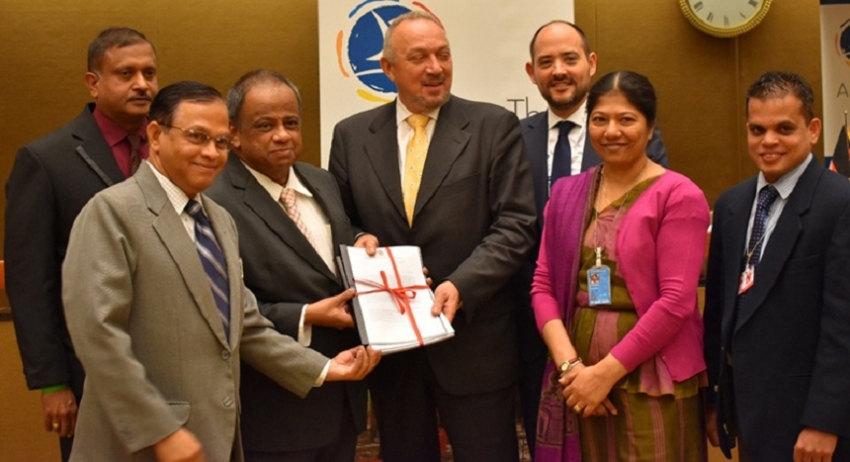The lands have been converted into highly productive lands for human settlement and for agricultural, industrial and fishing purposes.Sri Lanka developed a National Mine Action Strategy (2016-2020) and the government is using Information Management System for Mine Action (IMSMA) to track the progress on demining.
The victims have been provided with emergency assistance covering medical care, artificial limbs, and psychosocial support The livelihood assistance programme has also factored as special consideration for mine-affected victims and this will be further expanded, Sri Lankan representatives told the participants of the meeting.
The private sector will also be mobilised through Corporate Social Responsibility (CSR) programmes to further support mine-affected victims and this intervention will be commenced in January 2019. The Mine Risk Education (MRE) programme has helped to create awareness among schoolchildren and the public to be proactive and alert to reduce injuries and casualties.
The currently remaining 26 Sq.km land additionally requires US $ 12 Mn to fast-track the mine clearing process. The 26 Sq.km remaining area mainly includes Kilinochchi District Muhamalai area and areas such as Maritimepattu and Oddusuddan in Mullaitivu District.The commitment of the government to make Sri Lanka a mine-free country by 2020 and the progress achieved so far in the demining process attracted mine-hazard countries to learn from the success of Sri Lanka. Prince Mired Bin Ra’ad Bin Zeid Al-Hussein, the Special Envoy of the UN Secretary-General Promoting Universalisation of the Ottawa Convention who visited Sri Lanka on a mission also participated at the meeting and appreciated the progress.
He requested to share the experiences and practices with other countries, said Resettlement, Rehabilitation, Northern Development, and Hindu Religious Affairs Ministry Secretary Sivagnanasothy. Sri Lanka was represented by Sivagnanasothy, Ambassador A. L. A. Azeez, Permanent Representative of Sri Lanka to United Nations Organisation in Geneva and Samantha Jayasuriya, Deputy Permanent Representative to the United Nations in Geneva. Sri Lanka has been working on demining programmes through the National Mine Action Centre (NMAC) of the Ministry and the implementing partners were Sri Lanka Army Humanitarian Demining Unit (SLA-HDU), Halo Trust, Skavita Humanitarian Assistance and Relief Project (SHARP), The Mine Action Adversary Group (MAG), and Delvon Assistance for Social Harmony (DASH).




















